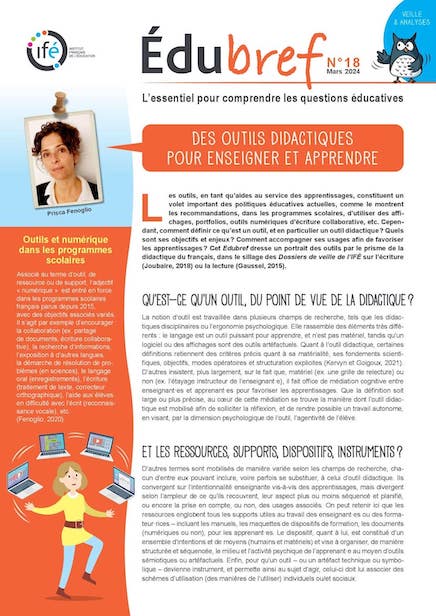Langue(s) : anglais
Auteur(s) : Kelly Kettlewell, Megan Lucas, Tami McCrone, Jose Liht and David Sims
Editeur(s) : National Foundation for Educational Research - NFER (NFER)
Date : 10/2020
Télécharger le document : https://assets.publishing.service.gov.uk/.../NFER_Governance_Strand1_Report_FINAL.pdf
mot(s) clé(s) : climat scolaire, gouvernance et pilotage
School and Trust Governance Investigative Report
Auteur(s) : Kelly Kettlewell, Megan Lucas, Tami McCrone, Jose Liht and David Sims
Editeur(s) : National Foundation for Educational Research - NFER (NFER)
Date : 10/2020
The Department for Education (DfE) commissioned NFER to carry out investigative research into school and trust governance. The purpose of the research was to provide independent evidence to inform future policy development and enable evidence-based prioritisation of resources to support school and trust governance throughout England.
This report includes findings from an online survey of 2,751 individuals from 1,207 schools and trusts in England, and 30 follow-up telephone interviews. Research was undertaken between November 2019 and March 2020.
Key Findings
- The majority of boards had vacancies and were struggling to recruit governors and trustees. However, most governing bodies were relying on word-of-mouth recruitment from their local and personal networks.
- There was a mismatch between the skills the governors/trustees felt their governing body had and those which the executive leaders felt they had, particularly in relation to knowledge and understanding of the education sector. There was also a mismatch in the (lack of) confidence individuals had in their own finance skills and their confidence in their boards’ skills in this area.
- Clerks, when utilised properly, were seen as key to the effective running of governing bodies, but not all bodies were making the most of the resource clerks can offer. Importantly, the support of an effective professional clerk was seen to help with the retention of governors/trustees.
- Within trusts there is a lack of separation between the different levels of governance, due to individuals taking on multiple roles across different levels.
- Effective monitoring and evaluation of the trust board, with the input from independent external sources, may help to ensure boards do not become too insular and are independently challenged.
- The complexity of MAT governance presents a unique challenge in ensuring clarity in the roles and responsibilities of the different tiers of governance. The research found that there was confusion between the different tiers of governance as to where responsibility for certain areas of decision making were held.
- Maintained school governing bodies appear to feel less confident in their strategic oversight role than trust boards and were also less likely to have received most forms of training, support and guidance compared to trustees.
Télécharger le document : https://assets.publishing.service.gov.uk/.../NFER_Governance_Strand1_Report_FINAL.pdf
mot(s) clé(s) : climat scolaire, gouvernance et pilotage














